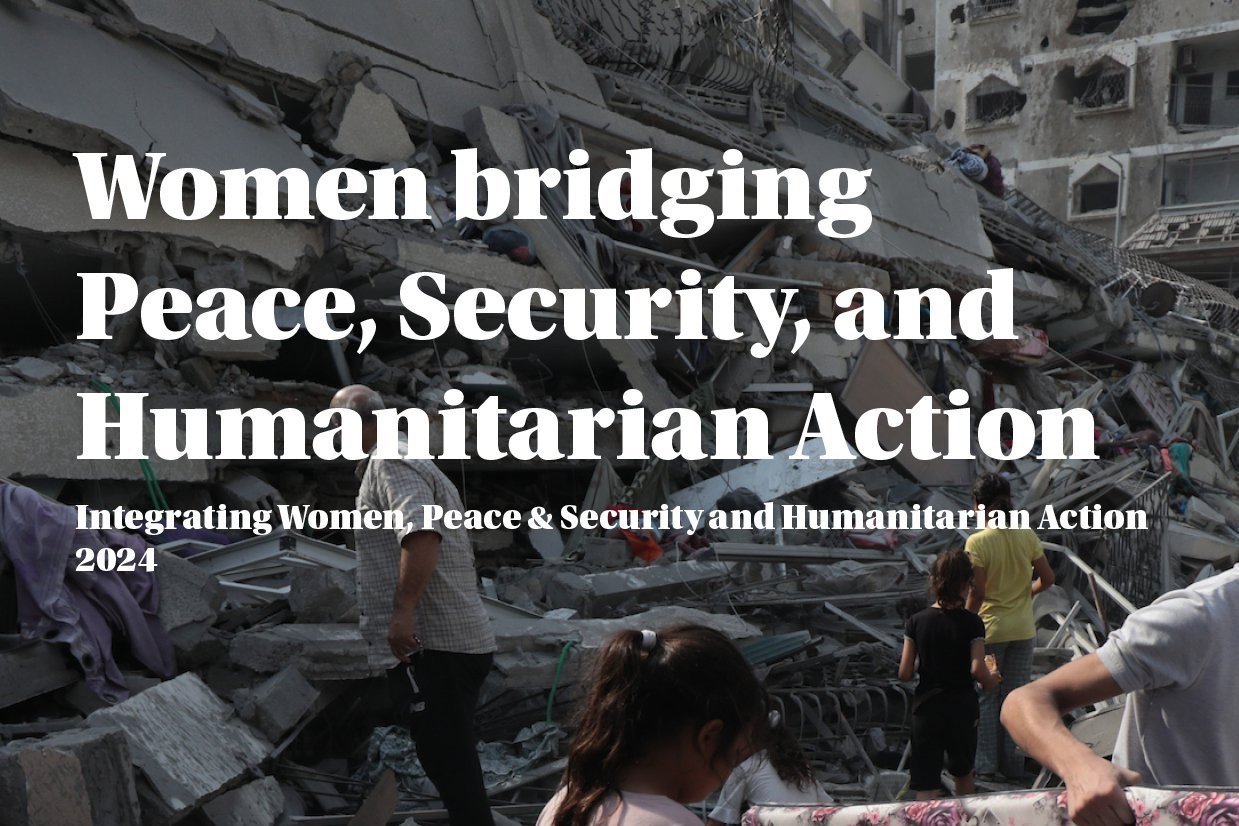The nexus: Women bridging Peace, Security, and Humanitarian Action
In order to achieve development goals, peace and security, and meet humanitarian needs, more emphasis is being put on the ‘nexus’ between these areas of work. But what are the barriers to such coordination?
To explore the opportunities and the discontents around the humanitarian action and peace and security nexus, Karama engaged in a consultation exercise with our partners. We listened to the experience and insights of activists who have been deeply involved in the implementation of the women, peace and security agenda to explore how they could see better integration between these areas of work, what experience they had of it, and how it could be put into practice.
The results of this work have been published in our report Women bridging Peace, Security, and Humanitarian Action. The report notes that there are many complementary aspects of WPS and humanitarian action, but that there remain practical and conceptual barriers to coordination. Our participants were also enthusiastic that there are lessons to be learned from the localization of the WPS agenda that could be applied to humanitarian action.
The report notes that an issue preventing effective implementation for both WPS and humanitarian action is the continued underrepresentation of women in leadership. Addressing this would be transformative for the nexus.
Perhaps the greatest threat to progress on the nexus, however, is waning confidence in the international system to achieve its goals. Nowhere is this more apparent than the war in Gaza.
The failure to achieve peace or dignity for the Palestinian people has cast a shadow over the United Nations and international order for more than 75 years. Throughout this time, there has been a deep contradiction in the treatment of Palestinians and their rights, with a double standard applied in international diplomacy.
Now, international justice mechanisms rule on the plausibility of Israel’s armed forces committing genocide against Palestinians in Gaza, while Israeli government ministers openly indulge in genocidal rhetoric, yet prominent members of the international community remain silent or continue to protect Israel from sanction. This is pulling at the last threads of the international system.
Progress on international agendas like women, peace and security and the nexus have only been realized through the coordination of international agencies, regional bodies, governments, and international and local civil society. This relies on trust between these actors and trust in the agendas. That trust is being weakened - perhaps terminally - by war in Gaza.

